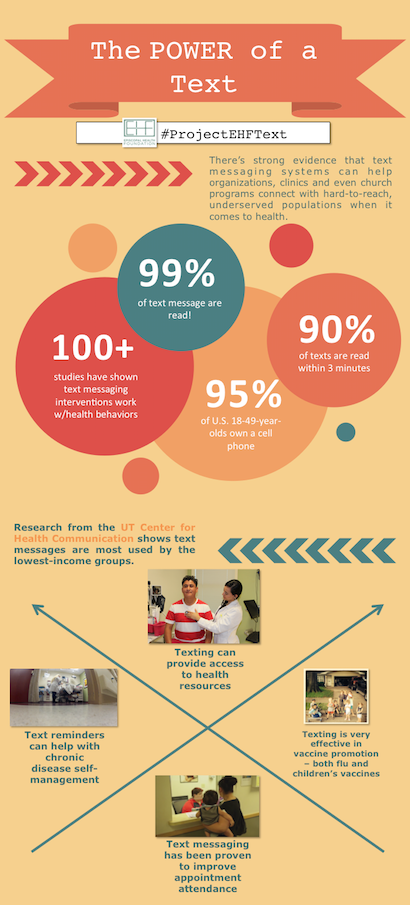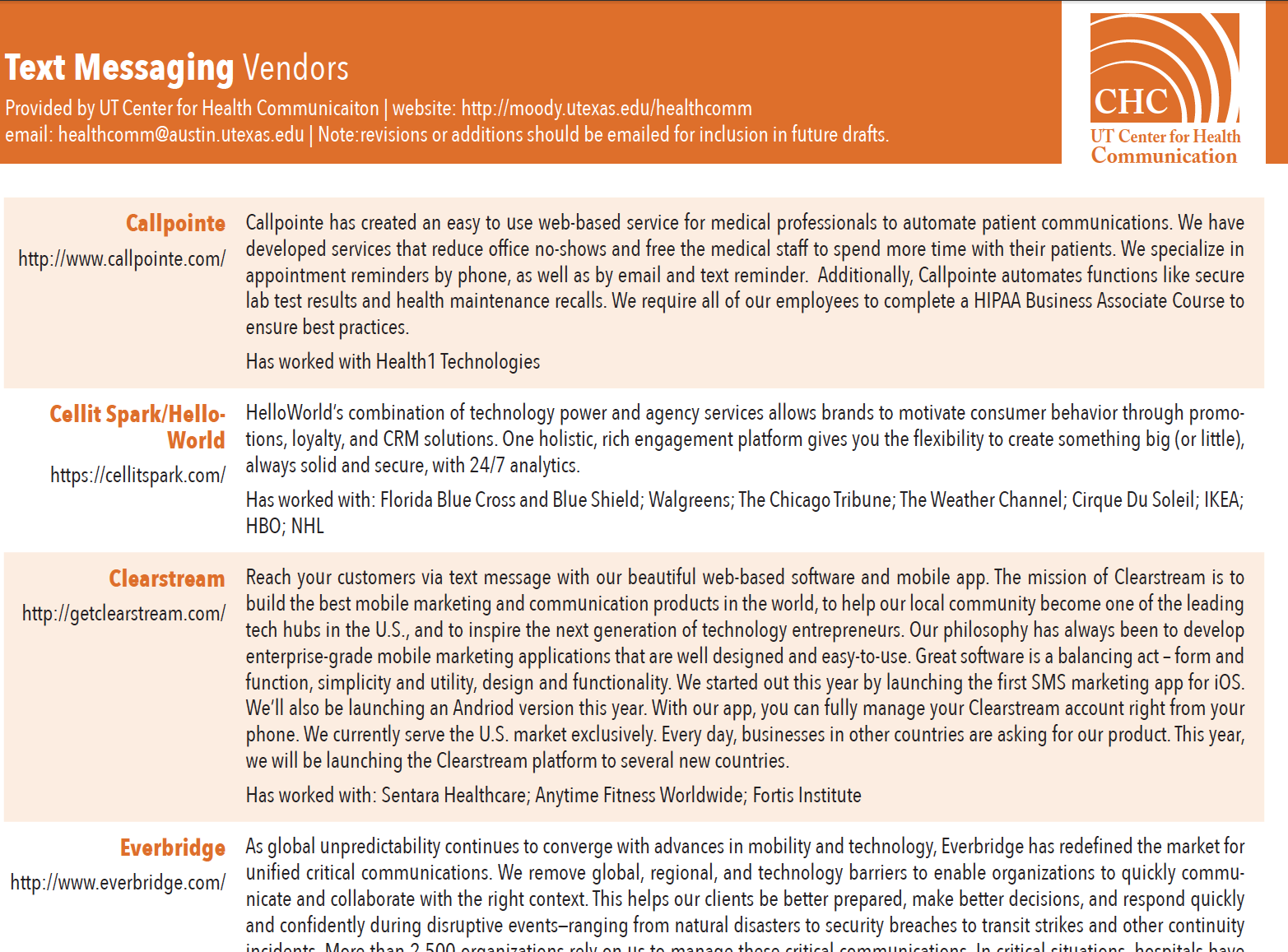
Think of all the ways we communicate in 2015 – – Facebook, Twitter, email, Instagram, even something called Snapchat!? But when it comes to reaching underserved populations, texting may hold far more power than any new technology.
Texting may be one way for your clinic, organization or church to reach vulnerable groups with the kind of important information that can begin to transform their health.
“There’s strong evidence that text messaging works with hard-to-reach audiences,” said Dr. Jay Berhardt, founding director of the Center for Health Communication at the University of Texas at Austin. “Almost everybody sends and receives texts. Texting includes all economic and ethnic groups.”
Bernhardt points to data showing the highest level of text messaging occurs with low-income groups that have fewer other (and more expensive) communication options. He says other research shows text messaging is often the preferred method of communication by underserved groups.
“Texting can give people access to heath resources they wouldn’t receive any other way,” Bernhardt said.
Bernhardt and his fellow researchers recently released a new study showing text messaging was most effective when addressing health issues like diabetes management, weight loss, encouraging physical activity and quitting smoking. The researchers looked at more than 100 studies over 10 years.
“We saw great results in texting programs centered on chronic disease self-management for things like diabetes and HIV,” said Bernhardt. “Texting has also proven very effective in vaccine promotion – for both children’s vaccines and annual flu vaccines. Texting programs have proved to be beneficial to health in so many ways.”
Bernardt says the Text4Baby program is a great example of how it can work:
Text4Baby (www.text4baby.org)
Five-year-old nationwide program that provides three science-based texts per week promoting healthy pregnancy and early child development
- Texts continue until baby is one year old
- Available in English and Spanish
- Women sign up by texting baby or bebe to 511411
- Sign up also available online at www.text4baby.org
- Mothers enrolled are more likely to get a flu vaccine and take folic acid
- Research shows mothers also have a higher level of confidence
See the many interesting reasons why the program decided to use text messaging
So, is a text messaging program right for your clinic or organization?
Bernhardt says don’t let common barriers prevent you from exploring the idea.
“Many clinics think their lowest-income patients don’t have phones or won’t look at texts,” Bernhardt said. “But the evidence shows that’s just not true. In fact, we’ve seen studies where the lowest-income patients were the most eager to participate in a texting program.”
HIPPA issues are usually not a concern either, because general health promotion falls outside the bounds of the law, Berndardt says.
So what about cost?
Bernhardt says don’t dismiss the idea just because of sticker shock. While there is often a substantial initial investment, many texting programs pay for themselves in the long run, he says.
“While texting programs can offer far more than appointment reminders, they’re very effective at that,” he explained. “We’ve seen a huge return on investment in many situations.”
A small government public health department in Texas said it investing $12,000 in a program to reach about 30,000 people. But, the department immediately began saving thousands of dollars a year in the cost of missed appointments.
Where do you start?
Bernhardt and his team developed a list of 25 text messaging vendors. Most have extensive experience in health programs.
Click on the image below to see the full list.
Is your clinic, organization or church using a text messaging program? If so, we want to hear from you. Let us know how it’s working and how others could benefit. Send us an email at info@episcopalhealth.org.
